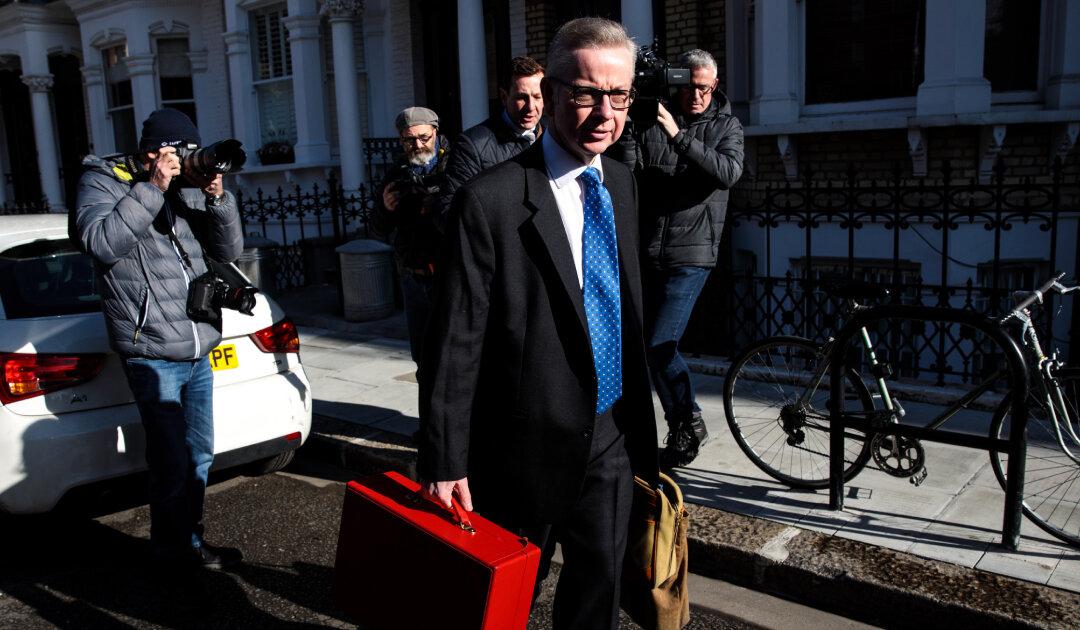LONDON—Michael Gove, a leading contender to replace British Prime Minister Theresa May, said he would delay Brexit rather than rush into a no-deal exit that could trigger an election that would propel Labour leader Jeremy Corbyn to power.
The United Kingdom could be heading towards a constitutional crisis over Brexit as many of the candidates vying to succeed May are prepared to leave the EU on Oct. 31 without a deal but parliament has indicated it will try to thwart such a scenario.





